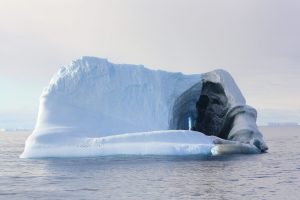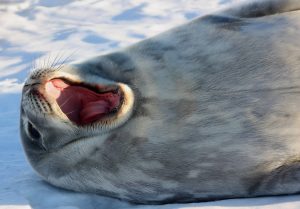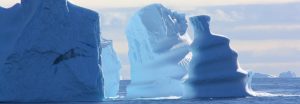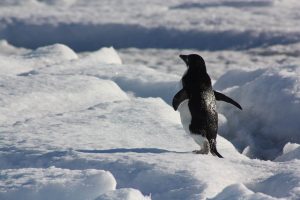
Antarctica: the Final Frontier
Ask any traveller with a fondness for adventure, and Antarctica will be on their bucket list.
 The draw to Antarctica comes down to the environment – cold, isolated, and absolutely beautiful. There is no culture, no people, so preconceptions are near impossible. With such versatile conditions, expanses of unexplored terrain, and so few visitors, you can be sure that no one will ever have the same experience as you.
The draw to Antarctica comes down to the environment – cold, isolated, and absolutely beautiful. There is no culture, no people, so preconceptions are near impossible. With such versatile conditions, expanses of unexplored terrain, and so few visitors, you can be sure that no one will ever have the same experience as you.
You can’t say “one day” forever, so cross Antarctica off your bucket list sooner rather than later – there is nowhere on earth where nature is so raw, so untouched and so beautiful.
Most voyages to Antarctica start at Ushuaia, Argentina. Leaving from here means travelling the famed Drake Passage, where the Atlantic meets the Pacific, and notoriously one of the roughest crossings.
Don’t let this put you off! Even people who suffer from seasickness on the Bruny Island Ferry have done this trip without too much trouble. We recommend getting a prescription for seasickness tablets from your travel doctor, and getting cosy with a few cups of ginger tea.
If this is the kind of issue that is holding you back, just make sure you are on a custom built ship for the conditions – stabilisers and ice-breaking capabilities a must!
 Antarctica has no permanent human residents, instead the home of millions of penguins and seals. Witness a raft of penguins in the water hunting for krill, or a waddle of penguins on land socializing and protecting their young from the conditions. Leopard seals patrol the coastline for food. Thousands of mighty whales migrate to Antarctic waters to feed in the summer. Watch out for the incredible and humbling humpback whale, and hear the deep rumbling breath across the water. While on board, keep your eyes peeled for a vast variety of seabirds, such as albatrosses, snow petrels, cormorants, and fulmars, swooping and diving.
Antarctica has no permanent human residents, instead the home of millions of penguins and seals. Witness a raft of penguins in the water hunting for krill, or a waddle of penguins on land socializing and protecting their young from the conditions. Leopard seals patrol the coastline for food. Thousands of mighty whales migrate to Antarctic waters to feed in the summer. Watch out for the incredible and humbling humpback whale, and hear the deep rumbling breath across the water. While on board, keep your eyes peeled for a vast variety of seabirds, such as albatrosses, snow petrels, cormorants, and fulmars, swooping and diving.
There is no hunting in Antarctica, and the animals have a healthy curiosity about the humans. There are a few rules about how you are allowed to interact with the animals, but it would seem that they don’t abide by the same rules, and you are likely to find penguins waddling over your shoes.
Shore excursions on Antarctic expeditions are a little different to what you can expect on any other cruise. Kayak silently among million year old glaciers. Pitch a tent in the purest of landscapes, among the towering, snow-covered mountains and fall asleep to the sounds of ice shifting and penguins chattering.
There will also be plenty to do onboard, with most companies organising talks by scientists, photographers, historians and other interesting speakers.
Antarctica is one of the few places on the entire planet that you can travel to and not be a tourist – you are an explorer, zipping off in zodiacs and getting close to the action.
 As with most destinations, you will get more out of your voyage by learning a little (or a lot, depending on your commitment level) about the history. Read about the explorers who came before you to prepare yourself for the conditions and adventure you are about to experience.
As with most destinations, you will get more out of your voyage by learning a little (or a lot, depending on your commitment level) about the history. Read about the explorers who came before you to prepare yourself for the conditions and adventure you are about to experience.
Antarctica was first sighted in 1820 by a Russian expedition led by Fabian von Bellingshausen, though the first person to step foot on the continent was Captain John Davis in 1821. There was fierce competition between Norwegian explorer Roald Amundsen and British Captain Robert F Scott to be the first to the South Pole. Scott discovered the plateau the pole was situated on, but Amundsen beat him to the pole itself, planting his flag in the year 1912.
 Then there is the story of Ernest Shackleton and his crew aboard the ‘Endurance’, which got stuck in the pack ice on the way to landing on the continent in 1915. Against all odds, Shackleton and his crew survived on the ice for 5 months before they were able to reach civilization on a lifeboat!
Then there is the story of Ernest Shackleton and his crew aboard the ‘Endurance’, which got stuck in the pack ice on the way to landing on the continent in 1915. Against all odds, Shackleton and his crew survived on the ice for 5 months before they were able to reach civilization on a lifeboat!
Antarctica is the type of destination that makes you stop and think – why are we in such a hurry all the time? There is that inescapable feeling of being nothing but a speck in a vast landscape, looking up at grandiose mountains and realizing just how small you are. And at the end of the day, isn’t that what travel is all about? Broadening your horizons, getting out of your comfort zone, and experiencing things you can never do at home?